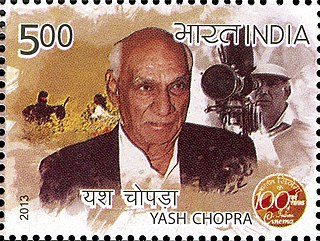A Quote by Noel Clarke
The BFI recently did a study of the British films that have the most people of color in them in the last 10 years, and in the top 10, three of the films were my films. I've always been a glass-is-half-full person. I've always gone, "If people aren't going to do it, I'm going to do it".
Related Quotes
Films have been my only passion in life. I have always been proud of making films and will continue taking pride in all my films. I have never made a movie I have not believed in. However, though I love all my films, one tends to get attached to films that do well. But I do not have any regrets about making films that did not really do well at the box office.
I suppose it's nice that I've made films that some people have heard of and respect. That's great. And it's certainly helpful in some regards, but they're really tough economic prospects. They always have been, and that's not necessarily getting any better. And not just the films, but it's also been a rough 10 years for that independent film market. And so I have stumbled onto this point in the timeline where the kind of stuff that I'm trying to do is not... it was a lot easier to know what to do with it 20 years ago.
My production company wasn't doing well, so we were not producing films. Over a period of time, we have realized that we are going to produce our own films and make cinema that we like. We've got so much in-house talent, and my kids are going to be coming, so we all decided that we are going to be in films and cinema.
We don't have great answers to what jobs will look like in 10, 20, 30 years. And I think it's right for people to have some anxiety in a world where driverless cars are going to take over. Like, how are you going - it's gotten really, how are you going to have a job in 10 years, and how are your kids going to have a job in 10 years, if you haven't gone to college or had a lot of hand-ups in the system, basically.


































